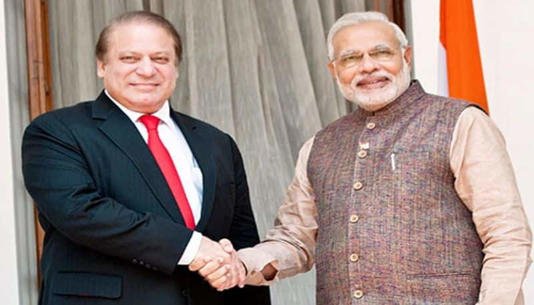Former Pakistani Prime Minister Nawaz Sharif expressed optimism about the potential for improved relations between India and Pakistan, following Indian External Affairs Minister S. Jaishankar’s recent visit to Islamabad for the Shanghai Cooperation Organisation (SCO) summit. In an exclusive interview with India Today after Jaishankar’s visit on October 16, 2024, Sharif emphasized the need to “bury the past” and focus on future cooperation in critical areas like energy security and climate change.
A Call for Optimism and Peace
Sharif’s statements reflected a hopeful outlook for a new chapter in the often tense relationship between the two neighboring countries. “We hope our relationship with our neighbor is going well,” Sharif said, underlining the potential for a fresh start. He expressed the desire to see peace talks revived, emphasizing that the two nations should pick up the conversation “from where we left off.” For Sharif, the decades of conflict and missed opportunities between India and Pakistan have already taken a significant toll. He urged both sides to avoid wasting another 75 years in the same cycle of disputes.
The Context of Jaishankar’s Visit
Jaishankar’s visit to Islamabad for the SCO summit marked a significant moment, as it was the first high-level trip by an Indian minister to Pakistan in nearly nine years. Although the visit was largely focused on reinforcing India’s commitment to the SCO rather than engaging in bilateral talks, the presence of Indian and Pakistani officials together raised hopes for improved ties. Jaishankar reportedly engaged in brief, informal conversations with Pakistani leaders, including Finance Minister Ishaq Dar, during social events associated with the summit.
The Path Forward and Lingering Challenges
Despite Sharif’s positive rhetoric, the road to better relations is paved with deep-rooted challenges. Long-standing issues, including terrorism and territorial disputes, continue to strain diplomatic efforts between the two nations. Both India and Pakistan have settled into a status quo of limited engagement, with little substantive dialogue in recent years.
For any meaningful progress to be made, both countries will need to navigate not only historical grievances but also entrenched political and military interests. While Nawaz Sharif’s comments signal a willingness to move forward, it remains to be seen whether these gestures will translate into sustained diplomatic efforts.
In summary, Sharif’s call for peace and cooperation offers a glimmer of hope, but the journey toward lasting change will require more than just optimism—it will demand concrete steps from both sides to overcome their fraught history.



